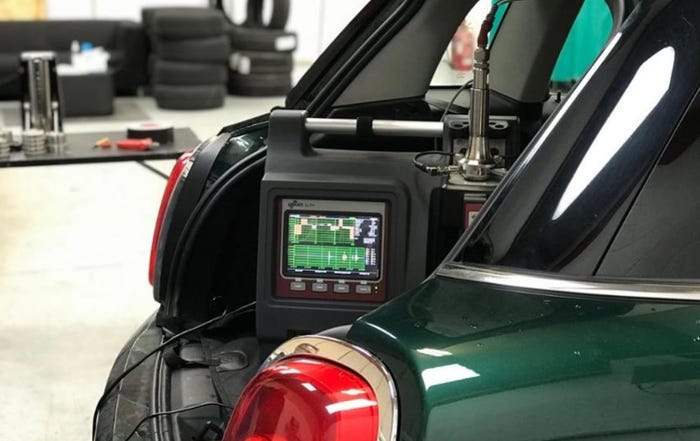Nissan's Ghosn Goes After Profits
Renault SA's former "Le Cost Killer," Carlos Ghosn, is measuring his task at Nissan Motor Co. Ltd. these days with visits to the Japanese auto-maker's international operations, impressing upon everyone he meets his immediate message: profitability for Nissan by next fiscal year. "It's non-negotiable," the Brazilian native says. "We don't have a lot of time to fix Nissan's problems."Analysts say that's
September 1, 1999

Renault SA's former "Le Cost Killer," Carlos Ghosn, is measuring his task at Nissan Motor Co. Ltd. these days with visits to the Japanese auto-maker's international operations, impressing upon everyone he meets his immediate message: profitability for Nissan by next fiscal year. "It's non-negotiable," the Brazilian native says. "We don't have a lot of time to fix Nissan's problems."
Analysts say that's a fairly ambitious goal considering Nissan announced this spring that it has a $35-billion debt load, but that it can be done. The former Renault executive vice president officially took over as Nissan's chief operating officer in July as part of a deal that saw Renault take a 36.8% stake in Nissan last March.
He expects to unveil a detailed plan before the Tokyo Motor Show in October on how he intends to return Nissan to its former financial health. Mr. Ghosn, 45, is considered a major contributor to the successful restructuring of Renault by streamlining component procurement and shuttering the French automaker's Belgian plant.
He has been touted as a candidate to succeed Renault Chairman Louis Schweitzer. For now, his eyes are firmly trained on Nissan's revitalization. "This decade has not been a wonderful decade for Nissan," he says, noting that between 1991 and 1998, the automaker lost 1.7% worldwide market share, going from 6.6% to 4.9%, which, he says "is already huge - 800,000 cars."
To that end, he is searching for ways to approach fundamental problems. But the new boss isn't seeking outside advice. "We want to build a revival plan for Nissan which is mainly based on what inside people think the problems of Nissan are and what they think the solutions are," he says, "because I'm convinced that the answers to the problems that Nissan is facing are inside the company."
Mr. Ghosn admits he came into his job at Nissan with a negative preconception of the company based on his relationship as a supplier eight years ago (he is former chief of Michelin North America Inc.), and from the image he drew from conversations with the automaker's top executives.
His experience, he notes, has been rewarded by a deep motivation on the part of employees throughout the company to shore up Nissan. "People ... want to be back to profit, be a normal company, grow again and compete on a solid basis," he says. "They want to make attractive products. There is a lot of love for our products in this company."
Though Mr. Ghosn's reputation as a financial whiz is to take no prisoners, he says he sees no immediate Nissan plant closings, although he hints that is a possibility outside the U.S. if sales don't increase soon. It's clear he's going forward with deliberation, aware that shedding workers and closing plants are taboo to Japanese business tradition.
He insists there will be no Nissan-badged Renaults or platform-sharing in the U.S. market for at least three years - coinciding with Nissan's new product cycle plan. Critical focus right now is with Nissan's overall product development, purchasing and manufacturing costs. Mr. Ghosn is meeting with long-standing suppliers, he says, not to dismantle Nissan's keiretsu system, but to insist that network players become more effective.
"The profitability of the supplier is an important element for us, because a supplier who is not profitable is a supplier who is not going to last with you," he says. "There is no place for complacency for us."
Suppliers must determine how they can meet Nissan objectives to cut costs, create more innovation and cooperation in developing new vehicles. Modularity will be considered where suppliers can demonstrate it will save money. "This is a major contributor to the recovery of Nissan," Mr. Ghosn says, "and here we're going to have to be extremely lucid, objective and determined."
Mr. Ghosn expects some suppliers will have to form joint ventures in order to meet Nissan's new standards, while others will drop away all together - leaving the door open for new relationships.
Revitalizing the Nissan brand also is key, and Mr. Ghosn is making sure that a determination of what the brand will stand for in the future is made by Nissan members worldwide, along with some outside help. "The reality has to come from a real confrontation of opinion," he says.
Additionally, he believes Nissan needs to become more consistent in product design. "We have made some great cars, and some not so great," he says. "We need to bring more of those cars that are niche in the beginning and trend at the end."
Success in the U.S. market, he says, is vital to Nissan's future. The automaker plans to introduce a series of new models to the U.S. - where Nissan sales were up 8% for the first half - many of them light trucks, and is considering a full-size pickup. "Nissan," Mr. Ghosn says, "has much more potential in the U.S. than what we are delivering today."
About the Author
You May Also Like



